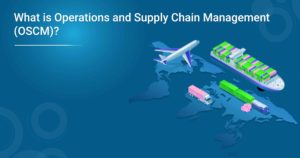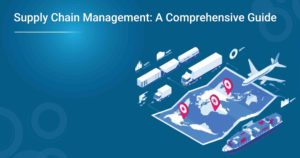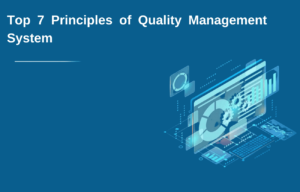Supply chain management courses provide students with the skills and knowledge necessary to manage supply chains effectively. The coursework covers a range of topics, including supply chain planning, logistics, inventory management, and procurement. Students who complete supply chain management courses will be prepared to enter the workforce with the ability to manage complex supply chains.
For businesses to remain competitive, they must have a well-managed supply chain. The importance of supply chain management has been magnified in recent years as businesses have become more globalized and reliant on Just-In-Time (JIT) inventory systems. Those who complete supply chain management courses can find employment in various industries, including manufacturing, retail, transportation, and healthcare.
What Are The Benefits of Supply Chain Management?
Supply chain management courses can benefit students, including developing analytical and problem-solving skills, understanding global supply chains, and managing projects effectively.
- Increased Efficiency: Supply chain management can help improve a business’s efficiency by reducing costs, streamlining processes, and improving customer service levels. By optimizing supply chains, businesses can reduce wastage and ensure that resources are used optimally.
- Improved Customer Service Levels: Organizations can ensure better customer service levels through better planning, communication, and collaboration within the supply chain network. Supply Chain Management (SCM) helps to provide customers with faster delivery times and higher quality products or services which is vital for keeping them satisfied.
- Increased Profitability: As SCM helps to reduce waste, inventory costs, and production time, it also increases the profitability of a business as more resources become available for other areas, such as research & development or marketing activities. Thus, companies can increase their competitive advantage over competitors who do not utilize SCM practices effectively.
- Reduction in Inventory Costs: By using technology such as enterprise resource planning (ERP) systems or radio-frequency identification (RFID) tags, organizations can maintain accurate records of stock levels leading to intelligent decision-making regarding inventory held at any one time and providing cost savings through reduced storage requirements, etc.
- Reduced Risk Exposure: SCM allows companies to identify potential risks within each link in the supply chain network before they occur, allowing organizations to move quickly should these arise, resulting in decreased risk exposure.Greater Visibility Across The Network: Using real-time data from suppliers across the entire network enables better visibility into what is happening throughout each stage of production, enabling managers to make informed decisions about future production plans based on current demand.
- Enhanced Collaboration Between Suppliers And Customers: Through effective collaboration between all stakeholders involved within a particular industry vertical such as Automotive/Aerospace manufacturers being able to use common platforms databases to share information with suppliers and customers. It provides greater transparency on whether goods ordered have been received, sent out, etcetera giving everyone peace of mind knowing that orders are accurately tracked and fulfilled without any delays.
Also Read: Green Supply Chain Management: What It Is and Why It Matters?
What is The Eligibility For A Supply Chain Management Course?
- Supply Chain Management (SCM) is a course of study that provides individuals with an understanding of the entire process, from procurement to delivery, involved in managing the flow of goods and services. It also covers strategic sourcing and vendor management, inventory control, logistics and distribution systems, warehousing operations, quality assurance processes, and customer service strategies.
- Students who are interested in a career in SCM should have knowledge or experience in economics or finance as well as general business management fundamentals such as accounting and marketing principles; there are no specific eligibility criteria for taking supply chain management courses. However, some universities may have prerequisites like minimum percentage marks/grades secured at 10+2 level examinations or entrance exams, etc., which one must meet before enrolling in these courses.
- A bachelor’sbachelor’s degree in any area related to business administration, along with strong communication skills, gives you an edge when applying for admission into a master’s program related to supply chain management. It would be beneficial if you possess prior knowledge about basic concepts related to warehouse operations & product development life cycles, which come under this domain.
- Individuals seeking admission into undergraduate programs can pursue diplomas /certifications from reputed institutions after completing class 12th with science stream, including technical subjects like Mathematics & computers so that they can gain deeper insights about this field though generally, engineering background students are preferred for the same.
- Though there is no specific requirement having certification or prior work experience in SCM serves your purpose when applying for job positions offered by companies associated with this industry afterward due to its competitive nature. Similarly, having a good academic record helps too during recruitment procedures conducted by these organizations on a campus placements basis after the completion of particular coursework successfully.
What Skills Can You Acquire In Supply Chain Management Course?
- Understanding of Supply Chain Management Concepts: A foundational understanding of the various concepts related to supply chain management is acquired in a course that covers this topic. Specifically, students learn about different types and levels of supply chains, how they impact an organization’s organization’s operations and the challenges associated with designing and managing them.
- Knowledge of Logistics Strategies: Through a course on supply chain management, students can also acquire knowledge about strategic logistics planning for goods transportation across international boundaries and within different countries. This includes customs clearance procedures, freight forwarding services, warehousing solutions, etc., which are essential to operating a successful global network for product distribution.
- Ability to Analyze Logistical Data: With access to data from both internal sources (e-commerce platforms) as well as external sources (customer feedback surveys), it becomes important for organizations to be able to analyze these datasets to gain insights into customer behavior at every stage of their journey through the entire value chain or procurement process itself so that decisions can be made accordingly based on findings from these analyses.
- Use Strategic Cost Reduction Methods: Since costs are an essential factor influencing corporate profit margins significantly over periods, learn about ways in which companies can reduce costs by optimizing their processes (such as inventory optimization techniques). It allows managers/executives to move ahead with more confidence knowing that there won’twon’t be excessive delays due to a lack of expertise regarding financial planning & forecasting figures vs actuals incurred along each step taken – thus enabling them to save not only money but also manpower resources dedicated to managing those tasks manually instead!
- Communication Skills For Negotiating Prices With Suppliers/Vendors: Good communication skills are essential when dealing with vendors who provide raw materials or other necessary resources needed by businesses regularly throughout operation cycles tied directly back toward organizational performance metrics like sales growth rates year-over-year. Therefore knowing how best to negotiate prices effectively without compromising quality standards set forth by both sides would go a long way, helping reach favorable terms quickly and efficiently without wasting too much time away from core objectives every week and month, respectively. In addition, it allows managers to develop relationships with suppliers’ trust over the period leading to potential discounts down the line if certain goals are achieved during negotiation making. Enrolling in our AI Supply Chain Management course, you will learn how to communicate with vendors to complete business deals effectively.
Types of Supply Management Courses
- Introduction to Supply Chain Management Course: This course introduces the fundamentals of supply chain management, including key concepts such as forecasting and inventory control, demand planning and fulfillment, transportation management, supplier relationship management (SRM), and global sourcing.
- Strategic Supply Chain Management Course: This course focuses on how strategic decisions in the supply chain can influence a company’s overall performance and competitiveness in the marketplace. Topics include understanding customer value propositions, building trust with suppliers, managing risk through technology-enabled solutions, developing an agile supply network to respond quickly to changing business conditions, etc.
- Operations & Logistics Management Course: This course provides an overview of operations & logistics processes within a company’s supply chain system. It covers topics ranging from production scheduling principles to warehouse design optimization techniques, from outbound delivery systems improvement approaches to reverse logistics program development, from capacity control strategies for manufacturing operation units to quality assurance frameworks applied across the entire organization, etc.
- Sourcing & Procurement Strategies Course: This course examines methods for selecting suppliers that will optimize cost savings while meeting operational objectives within a corporate environment by incorporating best practices such as e-procurement tools or supplier segmentation analysis into their procurement process model. It also looks at different types of contractual agreements available when negotiating contracts with vendors as well as other purchasing activities related matters like making sure goods/services are compliant with legal requirements or ethical standards during acquisition stages etc.
- Global Supply Chain Design & Management Course: This course explores various aspects involved in designing global networks that connect all stakeholders within the extended enterprise environment, including factors related to layout design, process flow reengineering, distribution channel selection strategies, optimization of international transportation networks (air/sea), integration of IT infrastructure used in tracking movements, etc.
- Project Planning & Execution Processes for SCM: This course focuses on project-based approach methodology commonly employed by organizations when launching new initiatives related to supply chains; it goes over steps taken during each phase -define needs /develop model /implement solution /monitor results -and explains how effective communication between internal stakeholders is pivotal for successful outcomes.
Related Course: Enroll for the AI in Supply Chain Management Course here!
Supply Chain Management Jobs
Head of Supply Chain Management
The Head of the Supply Chain is a key role in the supply chain management field. They supervise all aspects of the supply chain, from sourcing materials to delivering customer goods and services. They also need to ensure an efficient flow of information throughout the entire process. The Head of the Supply Chain must be able to identify areas for improvement and develop strategies for optimizing processes across the board.
Additionally, they must have excellent communication and problem-solving skills; their ability to collaborate with team members, vendors, and other stakeholders is essential. Ultimately, it’s up to them how successful a company’s supply chain will be – which comes down to cost reduction while still providing quality service on time. A successful head of supply chain can make or break a business’sbusiness’s success!
Supply Chain Manager
A Supply Chain Manager plays a crucial role in supply chain management. This professional oversees and manages all aspects of a company’s supply chain operations, from procurement to customer service. With their extensive knowledge base and expertise in navigating complex supply chains, Supply Chain Managers can make important decisions that have long-term impacts on their firm’s firms success and profitability.
A successful Supply Chain Manager needs to plan strategically, research new technologies, build strong relationships with suppliers and customers, monitor performance metrics, lead teams effectively, and stay current on industry trends. They also need excellent communication skills to work efficiently with other departments within the organization and external business partners.
Logistics Managers
Logistics Managers are integral players in the supply chain management process. They are responsible for planning and managing the efficient movement of goods from the point of production to the end customer. This may include overseeing inventory levels, transportation, warehousing operations, and distribution.
Logistics Managers interact with a variety of people both internally and externally including suppliers, customers, trucking companies, government agencies, auditors, etc., as they track shipments and monitor order status throughout their journey through the system. Their success is measured by timely delivery at an optimal cost while providing top-notch customer service along each step.
Assistant Manager-Supply Chain
The role of an Assistant Manager-Supply Chain is to oversee and coordinate supply chain operations. This includes managing the ordering and delivery of goods, negotiating contracts with suppliers, assessing stock levels, overseeing inventory control systems, managing warehouse staff, and liaising with customers. The assistant manager needs to be highly organized as they will deal with several different tasks simultaneously.
They must also have excellent communication skills to ensure that all stakeholders are kept informed about any changes or updates in the supply chain process. Additionally, they need good analytical skills to analyze data from various sources to identify areas for improvement within the supply chain system. As this position requires regularly interacting with other departments such as sales or marketing, the assistant manager must also have strong interpersonal skills.
Also, Read: What is Supply Chain Visibility? 10 key points
How To Choose The Best Supply Chain Management Course?
- Research: Doing some research is the first step to selecting a good supply chain management course. Start by researching supply chain management, its basics, and various concepts associated with it. Also, look for programs offered by accredited universities or institutions that offer courses in this field.
- Compare Programs: Once you have an idea of what is available out there, compare the different programs on factors such as the duration of the program, the cost involved in completing it, and certifications provided after completion, etc. Choose one that suits your needs and budget best.
- Accreditation: It is essential to choose a course from an accredited institution or university as they will provide valid certification upon successful completion of their program which can help you get better job opportunities later on. So make sure to check if the institution offering these courses is properly accredited before enrolling in any program.
- Prerequisites: Make sure to check out any prerequisites required for enrolling into these kinds of courses, like educational qualifications, etc., so that you don’tdon’t waste time and money trying something which you cannot complete due to a lack of eligibility criteria requirements.
- Reviews & Feedback: Look for reviews or feedback from people who have already enrolled in such programs from the same institute or university so that you can get an idea about how helpful those particular courses were for them. Such information can prove extremely valuable while choosing a particular course without wasting much money and effort.
Future Of Supply Chain Management Courses
The future of supply chain management promises to be exciting and rewarding. The world has become increasingly globalized and interconnected, allowing companies to source materials from around the globe and develop effective strategies for managing their supply chains. As a result, students taking a course in Supply Chain Management are being prepared for the challenges they will face in an ever-evolving industry.
They will learn about current trends such as Industry 4.0, digital transformation, advanced analytics, automation, and data-driven decision-making, all essential skills needed for successful supply chain operations. They will also gain insight into how emerging technologies like blockchain can help improve transparency within complex networks and enable new business models. With these tools at hand, individuals with knowledge of Supply Chain Management will have the opportunity to lead organizations through rapid changes while still achieving long-term sustainability goals.
Conclusion
In conclusion, Supply Chain Management courses provide a way to develop and sharpen the skills needed to succeed in this field. With an array of options available online or on-campus from universities around the world, students can find a program best suited for their needs.
They can teach various aspects of logistics and operations management, including supply chain strategy, global sourcing/procurement, inventory control, transportation/distribution management, customer service, and more. Ultimately these programs give individuals the knowledge they need to successfully manage supply chains effectively.
Enroll yourself in the best and most insightful supply management course. Check out our Advanced Executive Certificate in Supply Chain Strategy and Operations Management for more details.
More Information :



























